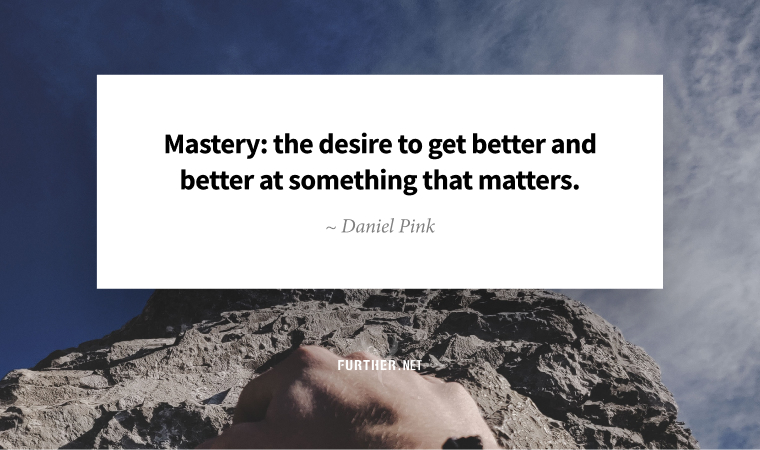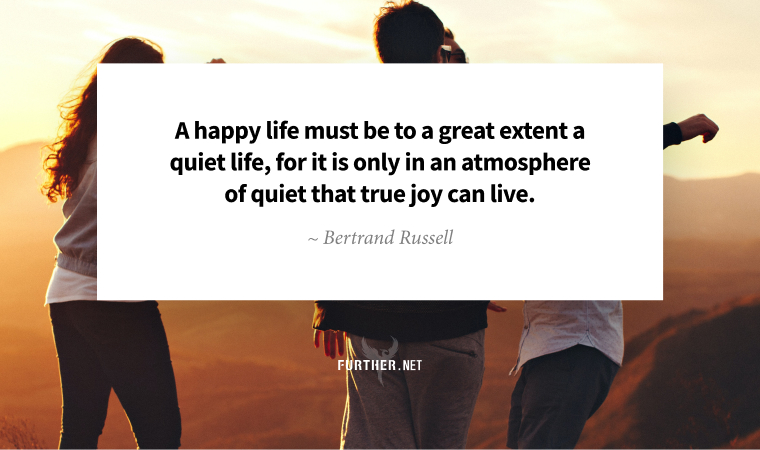
Imagine you’re trying to get better at something that matters.
You consistently put true effort into your practice. Every time you get a bit better, you intentionally make your task more difficult.
At first, you improve easily. Over time gains gets tougher, but you not only continue to make yourself work harder each time you get better, you look forward to making it tougher.
No, wait… you downright celebrate the opportunity to make it harder next time. That’s more accurate.
Eventually you hit a plateau. Instead of settling into this space as a comfort zone or worse, giving up, you strive even harder to get to the point where you can once again make things harder.
You may recognize this process as the pursuit of mastery. In fact, the language is similar to what you’ll find in the classic book Mastery: The Keys to Success and Long-Term Fulfillment by George Leonard.
But what I’m talking about is what I’ve observed in the gym over the last seven months. Men and women of all ages who struggle to lift a certain amount of weight for a certain amount of sets and repetitions, just so they can add more weight (or more reps) and do it all over again.
This is called progressive overload. That means by continually increasing the total workload during weight lifting sessions, you’ll stimulate muscle growth and strength gains.
Zoom out big picture, and progressive overload applies to anything you’re trying to get better at. According to Leonard’s book, the most successful path to mastering anything is to practice for the sake of the practice itself, not for the results. And it’s mostly about brief periods of improvement followed by stretches of hard work where you’re stuck on a plateau.
Despite the fact that most everyone in the gym is there to get stronger and look better, a focus on the process of progressive overload is what gets those results. Those who don’t embrace the process usually don’t last long, which is true of most any endeavor. That’s because when you’re on a dreaded plateau, the only way off is to show up and keep going regardless of results.
When we talk about being in our comfort zone, we’re really talking about being on a perpetual plateau. This is not only the enemy of any form of mastery; it’s also stagnation of your growth as a person.
One of life’s great ironies is that doing hard things leads to life satisfaction and fulfillment, while trying to lead a life of leisure rarely leaves us happy. Most people never accept this timeless truth, which is a shame.
What about you?
Perhaps the best way to apply the lessons of weight lifting to all aspects of your life is to start lifting weights. And it doesn’t really matter what approach you take, as long as progressive overload is in the house.
Further reading:
Mastery: The Keys to Success and Long-Term Fulfillment (Amazon)
Keep going-
P.S. New to Further? Join us here.
Neat Moves
Non-exercise activity thermogenesis (NEAT) is essentially all the calories a person burns through their daily activity except from purposeful physical exercise. Even small behavior changes can amplify or diminish how much NEAT you get, and this can shape your health in powerful ways.
There’s a way to get healthier without even going to a gym. It’s called NEAT (NPR)
Career Defining
A study by the American Institute for Economic Research (AIER) found that “In any given year, there are between one and two million older career changers.” The same study states that people who attempt a career change over 40 are successful and much happier due to the change.
It’s Never Too Late: Changing Careers at Midlife (Psychology Today)
You Keep Using That Word…
The results are in, and the best way to retire is to… start a business. Hey, I won’t argue with that, other than the use of the word “retire” in this context. I don’t think it means what they think it means.
This Is the Key to the Retiree Lifestyle You Want — and the Income You Need (Entrepreneur)
Morning Zen
Research shows meditation helps with everything from anxiety and depression to better sleep, lower stress levels, and chronic pain relief. And you can start small with five minutes of breathing exercises to calm and focus the mind every morning.
The Benefits of Morning Meditation (New York Times)
The Quiet Power of Intentional Silence

Recently, while walking back from the park, I recorded a voice note with a few to-dos. On playback, I couldn’t make out a word. All I could hear was the whoosh of traffic.
We’re increasingly exposed to elevated sound levels in our environments, sometimes without realizing it. A 2022 UN Report identified noise pollution as a serious emerging threat alongside the climate crises.
Sound distractions come in various forms, such as road or air traffic, loud music, construction work, nattering coworkers, a noisy HVAC system, or the unrelenting pock-pock of pickleball!
As I navigate midlife, I find I’m wearing my EarPods more frequently outside of calls and podcast listening to reduce the clamor and clatter. If you’re a highly sensitive person (HSP) like me, you also might be more easily distracted by the cacophony of your environment.
Hear Ye, Hear Ye!
Nuisance noise affects your productivity and well-being, making business costly. It also affects your quality of life.
Side effects range from anger, irritable moods, and fatigue to increased stress and anxiety. Studies have found that noise pollution dampens reaction time, decision-making, attention, memory, and concentration. It also raises our risk for cardiovascular disease, diabetes, high blood pressure, hormonal imbalances, and sleep disturbances. And persistent exposure to loud noise causes hearing loss that, if left untreated in midlife, may contribute to developing Alzheimer’s later on.
So, if any of these noise issues sound familiar, it’s a quiet warning to take action.
Listen Up
The good news is that hearing loss is one of the few modifiable risk factors that we have more control over.
Whether you want to protect your ears, improve your creative outputs, support your heart, or get a better night’s sleep, there are things you can do to drown out the discord in favor of quiet and calm.
- Try decibel-reducing earplugs for sleeping, concerts, or social situations.
- Cultivate a silent routine.
- Book a sound wellness treatment or immersive sound healing session.
- Mute your email notifications and media devices.
- Get outside and swap digital dings and pings for the tweets and peeps of birds.
- Enjoy more silent hobbies, like reading or meditation.
- Absorb sound in your home and office with plants and soft furnishings.
- Experiment with white noise (i.e., from a white noise machine, diffuser, or ambient music)
Introducing pockets of silence into your day quiets the chatter in your brain, calms your body, leads to better focus and flow, and creates space for more joy. To quote the Kings of Convenience from one of my favorite albums: “Quiet is the New Loud.”
Sometimes a little silence is golden. It has a sound all of its own, worth listening to if you want to hear well into the next age.
Noise Pollution Health Effects (Medical News Today)
How Noise Affects Concentration (Illuminated Integration)
12 Ways Noise Affects Worker Well-being & Productivity (Resonics)
Mich (Mish) Bondesio helps high achievers stuck on the hamster wheel of overwork to activate more of their potential and craft a more meaningful life, in midlife and beyond as the founder of Creating Cadence. Mich’s new book, The Cadence Effect, is about transforming your life with intentionally productive habits.
further: flashback

Beastie Boys – Shake Your Rump
Paul’s Boutique, 1989
Despite the massive success of their first album, the Beastie Boys were written off as one-hit wonders and “frat rap” by critics. They then shocked everyone with Paul’s Boutique, described as the “Sgt. Pepper’s of hip-hop” and regarded as one of the greatest albums of all time. Shake Your Rump is so sonically dense with samples that it was intended to be an instrumental, but the boys added witty rhymes regardless. (YouTube)
further: sharing

Further subscribers who share the newsletter with friends can gain three months of access to our exclusive membership community Well + Wealthy with only five referrals. Get your own free weekly dose of health, wealth, travel, and happiness advice here, and find out all the details on our referral program.
Thank you for sharing Further!
